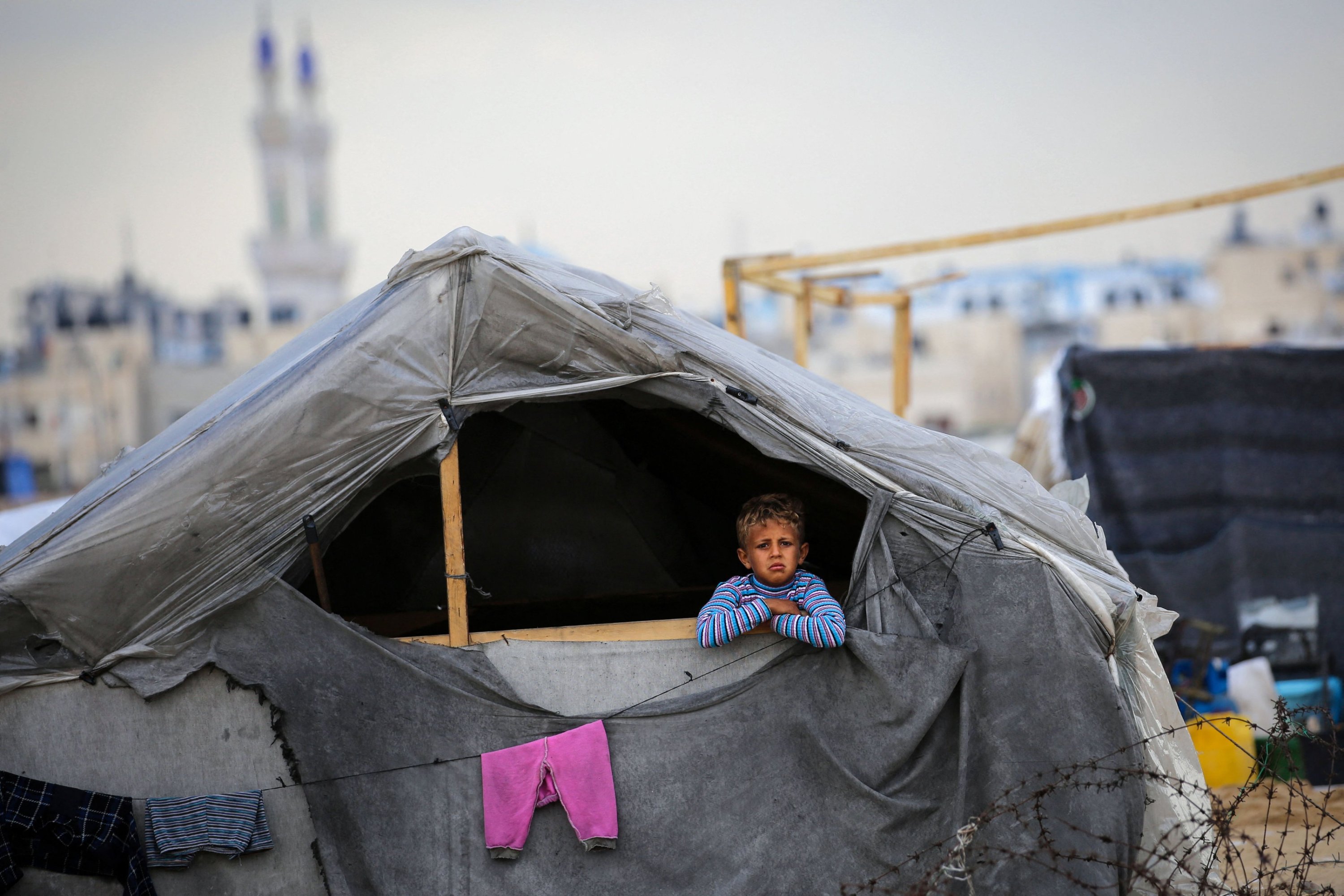© Turkuvaz Haberleşme ve Yayıncılık 2025
Although the hegemonic circles such as most Western countries and the leading global financial and economic institutions have been supporting Israel and its ongoing genocide against the innocent Palestinians both in the Gaza Strip and the West Bank, the majority of the world public opinion takes the side of humanity, protesting against the Western-supported Israeli genocide.
The world is largely divided into two political fronts: those who support genocide and provide unconditional support to Israel and those who attempt to protect universal humane values and support the oppressed people of Gaza. Most of the influential powers have been staunchly supporting Israel, absolving it of responsibility for any wrongdoing or any crime.
A recent example is the statements made by U.S. National Security Advisor Jake Sullivan, asserting: "We do not believe what is happening in Gaza is a genocide. We have been firmly on record rejecting that proposition." In other words, the Biden administration does not consider Israel's mass killings in Gaza as genocide. The United States government continues to undermine the protests of university students across Western countries and to ignore the global outcry against unconditional U.S. support and its complicity in Israeli atrocities. It remains focused on Israel's security and the defeat of Hamas, no matter the cost. As of now, more than 35,000 innocent Palestinians, nearly 70% of whom are children and women, have been killed in Gaza. A significant share of the vital infrastructure in the Gaza Strip, including schools, hospitals, apartments and refugee camps, has been destroyed.
The Biden administration has recently come under fierce criticism, even from its support base, for its unwavering backing of Israel, accused of committing genocide. College students have dubbed U.S. President Joe Biden "genocide Joe" for his complicity in genocide. Some public opinion polls suggest that public support for Biden could plummet by 13% due to his endorsement of Israeli massacres in Gaza. Not to mention that Israel maintains a total blockade on the Gaza Strip, with its forces obstructing crucial humanitarian aid from reaching the starving Palestinians and providing medical care to the injured and sick people in the hospitals.
These power circles have no significant indication of the return to the order-based international system. However, some middle and small states have been increasing their opposition to the Israeli genocide and the ongoing American support for this crime. They must speak out against the persistent violation of international law and basic international conventions. Otherwise, they will also pay heavy prices due to the increasing level of unilateral policies of global powers.

The first important middle power that has taken initiative against Israel’s crimes was the Republic of South Africa, which requested international action to stop the Israeli massacres in Gaza.
The South African government accused Israel of “continuing violations of the Genocide Convention” and appealed to the International Court of Justice (ICJ) last December. South Africa has recently made another application to the ICJ for emergency measures over Israel’s attacks against Rafah, but the court has rejected its application.
South Africa, which suffered racism from an apartheid regime for decades, was a symbolic state, representing the global intifada against imperialist power circles. Several countries have explained that they joined the South African genocide case against Israel. Columbia formally requested to join the case against Israel. Then, Foreign Minister Hakan Fidan explained that Türkiye would join in South Africa’s genocide case against Israel at the ICJ. The Egyptian Foreign Ministry has also explained that it is determined to support South Africa’s Gaza genocide case against Israel formally.
Although the founding fathers of the current international system have been bluntly violating the main principles of the system, the current multilateral international system provides an opportunity for middle powers to have an effective role in regional crises and international politics. Middle powers such as Türkiye, Iran, Indonesia, Pakistan and Egypt can establish a regional coalition that takes measures against Israeli atrocities and end the crisis in Gaza. They can lead other countries to recognize Palestine as an independent state. Their combined efforts can influence the policies of global powers.
Supporting Palestine and trying to oppose the Israeli genocide requires joint efforts. New or renewed global crises, such as the Israeli assault against the Gaza Strip, will sooner or later force middle powers to increase their strategic autonomy and follow a more independent foreign policy. Thus, middle powers are expected to consolidate the global system.
